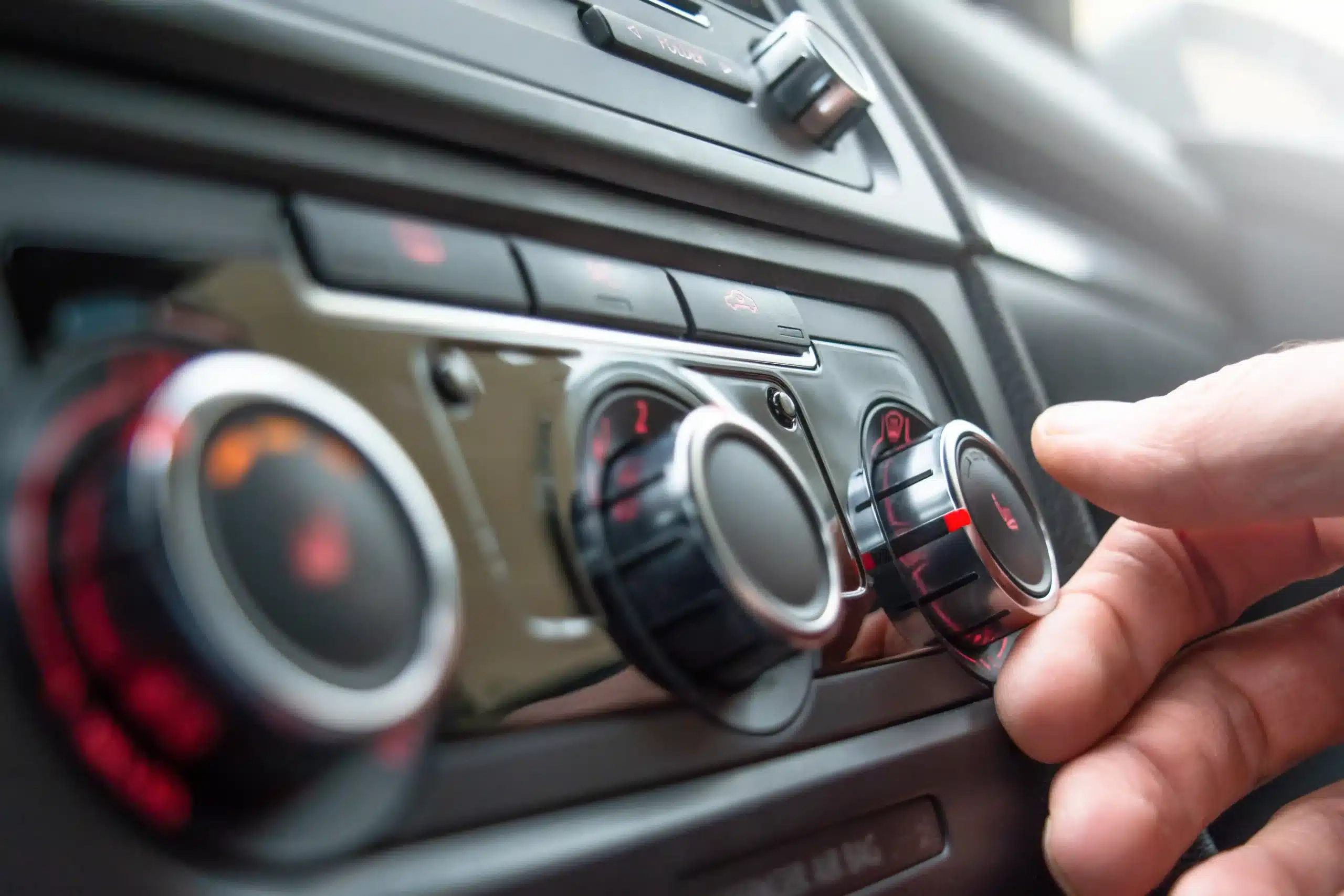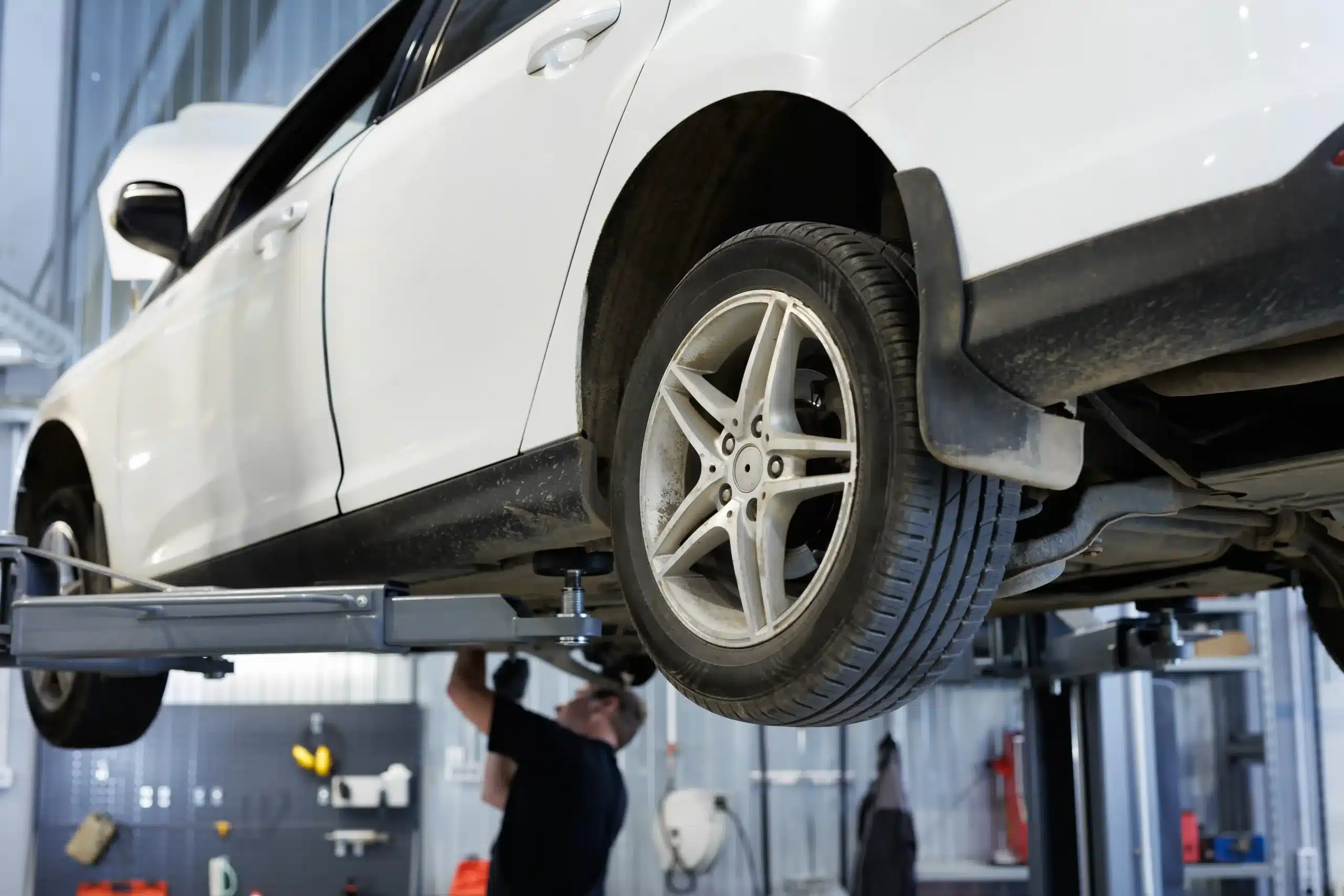The clutch and gearbox are fundamental components of your vehicle’s transmission system, working together to transfer power from the engine to the wheels smoothly and efficiently. When problems arise with either component, the symptoms can range from mildly irritating to completely debilitating, potentially leaving you stranded. Understanding the signs of clutch and gearbox issues, what repairs involve, and why professional service matters can help you make informed decisions and keep your vehicle running reliably. In this comprehensive guide, we’ll explore everything you need to know about clutch replacement and gearbox repair.
Understanding Clutch and Gearbox Functions
Before exploring problems and repairs, it’s helpful to understand how these components work and why they’re so crucial to your vehicle’s operation.
How the Clutch Works
In manual transmission vehicles, the clutch is the mechanical connection between the engine and gearbox. When you press the clutch pedal, you disengage the engine from the gearbox, allowing you to change gears smoothly. Release the pedal, and the clutch plates engage, transferring engine power through the gearbox to the wheels.
The clutch assembly consists of several components:
- Clutch disc (friction plate): Contains friction material that grips the flywheel
- Pressure plate: Applies force to hold the clutch disc against the flywheel
- Release bearing: Disengages the clutch when you press the pedal
- Flywheel: The rotating surface the clutch disc presses against
How the Gearbox Works
The gearbox (or transmission) contains multiple gear ratios that allow your engine to operate efficiently across different speeds. Lower gears provide more power for acceleration and hill climbing, whilst higher gears enable economical cruising at speed. Manual gearboxes require the driver to select gears using the clutch and gear lever, whilst automatic gearboxes handle gear selection automatically using complex hydraulic and electronic systems.
Symptoms of Clutch Problems
Recognising clutch issues early can prevent complete failure and reduce clutch replacement costs. Here are the key warning signs:
Slipping Clutch
A slipping clutch is one of the most common symptoms of wear. You’ll notice the engine revs increase without a corresponding increase in vehicle speed, particularly when accelerating or climbing hills. The clutch disc has worn so thin that it can’t grip the flywheel effectively, causing power loss. This symptom indicates clutch replacement is needed soon.
Difficulty Changing Gears
If you struggle to engage gears, hear grinding noises when changing, or find the gear lever catches or sticks, your clutch may not be disengaging fully. This could indicate problems with the clutch hydraulics, cable adjustment, or a worn release bearing.
Biting Point Changes
A rising or falling clutch biting point (the point where the clutch begins to engage) often indicates significant wear. If you find yourself lifting your foot higher or lower than usual before the clutch engages, schedule an inspection.
Clutch Pedal Feel Changes
Changes in clutch pedal resistance provide important clues:
- Spongy or soft pedal: Suggests air in the hydraulic system or fluid leaks
- Stiff or heavy pedal: May indicate cable problems or clutch mechanism issues
- Pedal stays down: Points to hydraulic failure or linkage problems
Burning Smell
A distinctive burning odour, particularly after heavy use or hill starts, indicates excessive clutch slip and friction material overheating. This accelerates wear and signals that clutch replacement should be considered.
Vibration or Judder
If you feel vibration or juddering through the clutch pedal or vehicle when pulling away, this could indicate a warped clutch disc, worn release bearing, or contaminated friction surfaces.
Noise When Operating the Clutch
Unusual noises when pressing or releasing the clutch pedal, such as squealing, grinding, or rattling, often indicate worn or failing components like the release bearing or pressure plate.
Symptoms of Gearbox Problems
Gearbox issues can affect both manual and automatic transmissions. Early detection and professional gearbox repair can prevent catastrophic failure.
Difficulty Selecting Gears (Manual Gearbox)
Beyond clutch-related issues, problems selecting gears can indicate internal gearbox problems such as worn synchromesh rings, damaged selector forks, or linkage issues.
Jumping Out of Gear
If your vehicle unexpectedly jumps out of gear whilst driving, this is a serious safety concern indicating worn selector mechanisms, damaged gear teeth, or weak detent springs inside the gearbox. Seek gearbox repair immediately.
Grinding or Whining Noises
Unusual sounds from the gearbox area point to specific problems:
- Grinding when changing gear: Worn synchromesh or clutch issues
- Whining in a specific gear: Worn gear teeth or bearings
- Constant whining: Low transmission fluid or bearing failure
Leaking Transmission Fluid
Red or brown fluid underneath your vehicle often indicates a gearbox oil leak. Transmission fluid is essential for lubrication and hydraulic operation in automatic gearboxes. Low fluid levels cause serious damage requiring extensive gearbox repairs.
Delayed Engagement (Automatic Gearbox)
If your automatic gearbox hesitates or delays when shifting from park or neutral into drive or reverse, this suggests problems with the hydraulic system, valve body, or transmission fluid condition.
Harsh or Jerky Gear Changes
Automatic gearboxes should shift smoothly between gears. Harsh, jerky, or aggressive gear changes indicate potential issues with the hydraulic system, solenoids, or transmission control module.
Slipping Between Gears
If your automatic gearbox seems to slip between gears, with the engine revving without power transfer, this indicates internal clutch pack wear or hydraulic problems requiring professional gearbox repair.
Dashboard Warning Lights
Modern vehicles feature transmission warning lights that illuminate when the gearbox control system detects faults. Never ignore these warnings—seek professional diagnosis from experienced gearbox repairers immediately.
Clutch Replacement: Costs and Timelines
Understanding what clutch replacement involves helps you plan for this inevitable maintenance item.
What’s Included in Clutch Replacement
A complete clutch replacement typically includes:
- New clutch disc (friction plate)
- New pressure plate
- New release bearing
- Resurfacing or replacing the flywheel if necessary
- New clutch alignment tools and hardware
- Labour for gearbox removal, clutch fitting, and reinstallation
Clutch Replacement Costs
Clutch replacement costs vary significantly based on several factors:
Vehicle Type: Small hatchbacks with simple clutch systems cost less than large SUVs or performance vehicles with complex dual-mass flywheels.
Labour Intensity: Front-wheel-drive vehicles with transverse engines typically require more labour than rear-wheel-drive vehicles, as accessing the clutch involves more component removal.
Flywheel Condition: If your flywheel requires resurfacing or replacement, costs increase. Dual-mass flywheels, common on modern diesel vehicles, are particularly expensive.
Parts Quality: Original equipment (OE) quality parts cost more than budget alternatives but offer better performance and longevity.
As a general guide:
- Small to medium cars: £300-£600
- Larger vehicles and SUVs: £600-£1,200
- Performance or specialist vehicles: £1,200-£2,000+
These estimates include parts and labour. Your local gearbox repairers can provide accurate quotes based on your specific vehicle.
Clutch Replacement Timeline
Clutch replacement is a labour-intensive job requiring gearbox removal. Typical timelines include:
- Small to medium cars: 4-6 hours
- Larger or complex vehicles: 6-10 hours
- Four-wheel-drive vehicles: 8-12 hours
Most garages can complete the work within one day, though you should expect to leave your vehicle overnight to allow for thorough work and quality checking.
Gearbox Repair: Costs and Timelines
Gearbox repairs range from minor adjustments to complete rebuilds or replacement.
Types of Gearbox Repair
Minor Repairs: Oil seal replacement, linkage adjustment, or sensor replacement can often be completed without gearbox removal, costing £100-£300.
Intermediate Repairs: Addressing specific internal issues like synchromesh replacement, selector mechanism repair, or bearing replacement requires gearbox removal and partial disassembly, typically costing £500-£1,500.
Major Repairs: Complete gearbox rebuilds involving extensive internal work cost £1,000-£3,000, depending on the vehicle and extent of damage.
Gearbox Replacement: Sometimes replacement with a reconditioned or used gearbox is more economical than rebuilding. Costs range from £800-£3,000+ including fitting.
Automatic Gearbox Repairs: Automatic transmissions are more complex and expensive to repair, with costs often ranging from £1,500-£5,000 for major work.
Factors Affecting Gearbox Repair Costs
Several factors influence final costs:
- Diagnosis complexity: Some issues require extensive investigation
- Parts availability: Common vehicles have readily available parts; specialist vehicles may require expensive or hard-to-source components
- Extent of damage: Minor issues caught early cost far less than catastrophic failures
- Gearbox type: Manual gearboxes are generally less expensive to repair than automatics
Gearbox Repair Timeline
Repair timelines vary considerably:
- Minor repairs: Can often be completed same-day or within 24 hours
- Intermediate repairs: Typically require 2-3 days
- Major rebuilds: May take 3-7 days depending on parts availability and work complexity
- Gearbox replacement: Usually 1-3 days
Professional gearbox repairers provide realistic timelines based on your specific situation.
Why Choose Professional Gearbox Repairers
Whilst some minor repairs might seem DIY-friendly, clutch replacement and gearbox repair require specialist knowledge, equipment, and experience. Here’s why professional service matters:
Specialist Knowledge and Experience
Professional gearbox repairers have extensive experience with various gearbox types and common failure modes. They quickly diagnose problems accurately, saving time and preventing misdiagnosis that could lead to unnecessary repairs.
Proper Equipment and Tools
Clutch and gearbox work requires specialist equipment:
- Professional vehicle lifts for safe access
- Transmission jacks for safe gearbox removal and installation
- Clutch alignment tools for proper fitment
- Torque wrenches for precise bolt tightening
- Diagnostic equipment for automatic gearbox systems
Quality Parts and Materials
Reputable garages source quality replacement components that meet or exceed original specifications. Cheap clutch kits or gearbox parts often fail prematurely, making false economy of initial savings.
Comprehensive Service
Professional gearbox repairs include thorough inspection of related components. When the gearbox is removed for clutch replacement, technicians can inspect the flywheel, rear main oil seal, gearbox input shaft, and other components, addressing issues before reassembly.
Warranty Protection
Professional clutch replacement and gearbox repair comes with warranties on parts and labour, protecting your investment. Reputable garages stand behind their work, providing peace of mind.
Correct Procedure and Safety
Gearbox removal and installation require precise procedures to ensure proper fitment, correct torque specifications, and safe operation. Professionals follow manufacturer guidelines and industry best practices.
Time and Convenience
Whilst professional service costs more than DIY attempts, the time saved and stress avoided are considerable. Professional gearbox repairers complete work efficiently, getting you back on the road quickly.
Prevention of Further Damage
Inexperienced work can cause additional damage. Incorrect clutch installation can damage the flywheel or gearbox input shaft. Improper gearbox installation can cause oil leaks, noise, or premature failure.
Advantages of Choosing a Local Garage for Gearbox Repair
When searching for “gearbox repair near me,” choosing a local garage offers distinct benefits:
Convenience and Accessibility
Local garages are easy to reach for drop-off and collection, reducing inconvenience when your vehicle requires work.
Personal Service
Local businesses pride themselves on customer relationships and reputation. You’ll receive personalised attention and honest advice rather than being just another job number.
Competitive Pricing
Local independent garages typically offer competitive rates compared to main dealers, without compromising on quality or expertise.
Flexibility
Local gearbox repairers often accommodate urgent requirements and work around your schedule more readily than larger operations.
Community Reputation
Local garages rely on community reputation and word-of-mouth recommendations, incentivising high-quality work and excellent customer service.
Supporting Local Business
Choosing local services supports your community’s economy and helps maintain valuable local expertise.
Contact First Auto Centre for Clutch and Gearbox Services
At First Auto Centre Ltd in East Ham, we specialise in all aspects of clutch replacement and gearbox repair for all makes and models. Our experienced technicians have the knowledge, equipment, and expertise to diagnose and repair even the most complex transmission issues.
Whether you’re experiencing clutch slip, difficulty changing gears, unusual noises, or any other transmission symptoms, we’re here to help. We provide honest, transparent assessments of your vehicle’s condition and clear explanations of any work required, with no hidden costs or unnecessary recommendations.
Our comprehensive clutch and gearbox services include:
- Complete clutch replacement with quality parts
- Manual gearbox repairs and rebuilds
- Automatic gearbox servicing and repairs
- Flywheel resurfacing and replacement
- Gearbox oil changes
- Clutch and gearbox diagnostics
- Pre-repair inspections and accurate quotes
Don’t let clutch or gearbox problems leave you stranded—contact First Auto Centre today. Whether you need clutch replacement, gearbox repair, or expert diagnosis of transmission issues, our team provides professional service you can trust at competitive prices.
We understand that transmission problems can be worrying and expensive, which is why we’re committed to honest assessments, quality workmanship, and fair pricing. When you’re searching for reliable “gearbox repair near me” in East Ham, choose First Auto Centre for expert service and peace of mind.
Call us today to discuss your clutch or gearbox concerns, or visit our garage to speak with our friendly team. We’ll get your vehicle back to smooth, reliable operation with minimal downtime and maximum value.
Conclusion
Understanding clutch and gearbox problems, recognising warning signs early, and choosing professional gearbox repairers makes a significant difference to repair costs and vehicle reliability. Whether you need clutch replacement or complex gearbox repairs, professional service from experienced technicians ensures work is completed correctly, safely, and with appropriate warranties.
Don’t ignore transmission symptoms—they rarely improve on their own and typically worsen over time, leading to more expensive repairs. At First Auto Centre, we’re your trusted local experts for all clutch and gearbox services in East Ham. Contact us today and let us keep your vehicle shifting smoothly for years to come.








